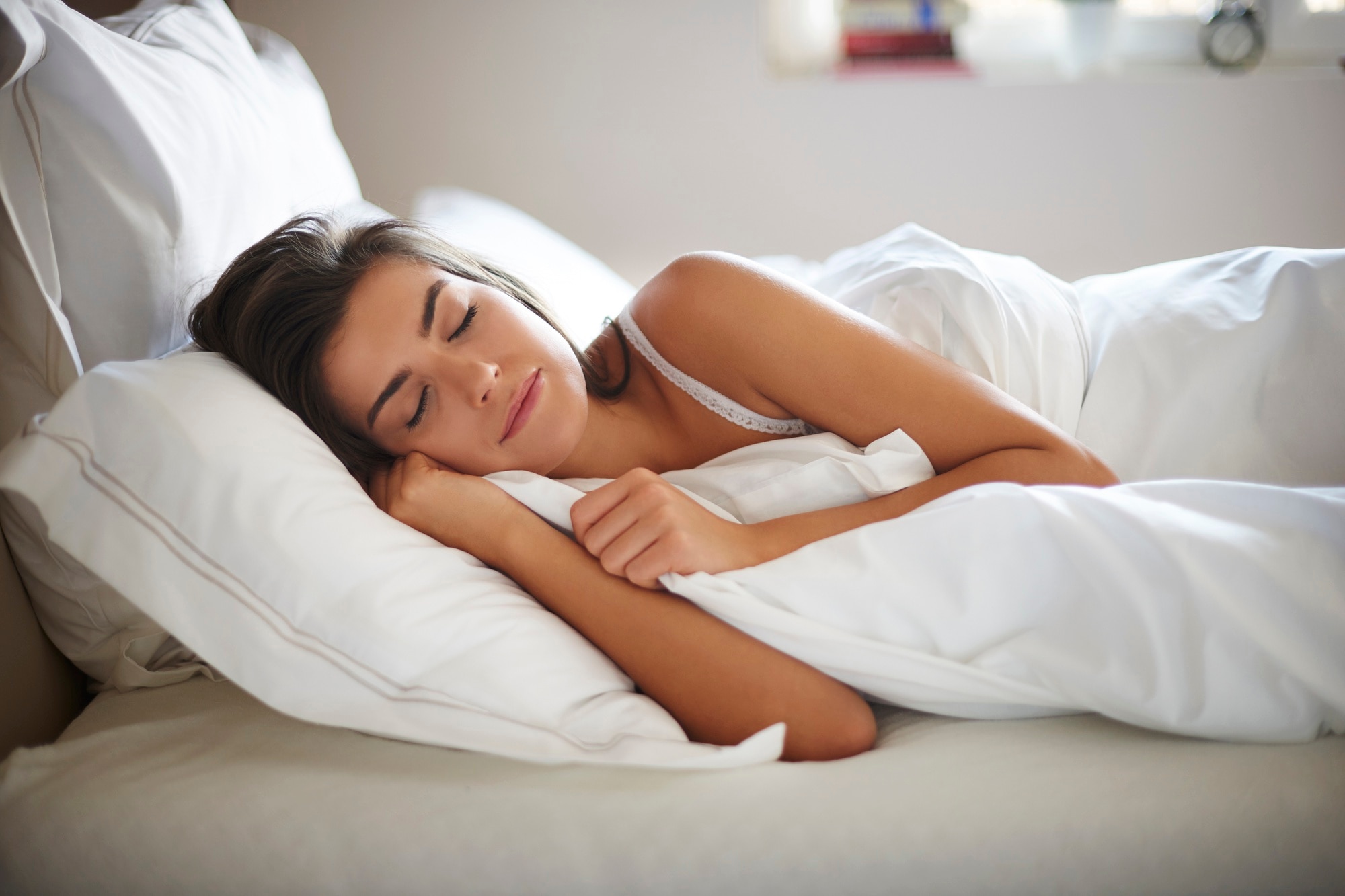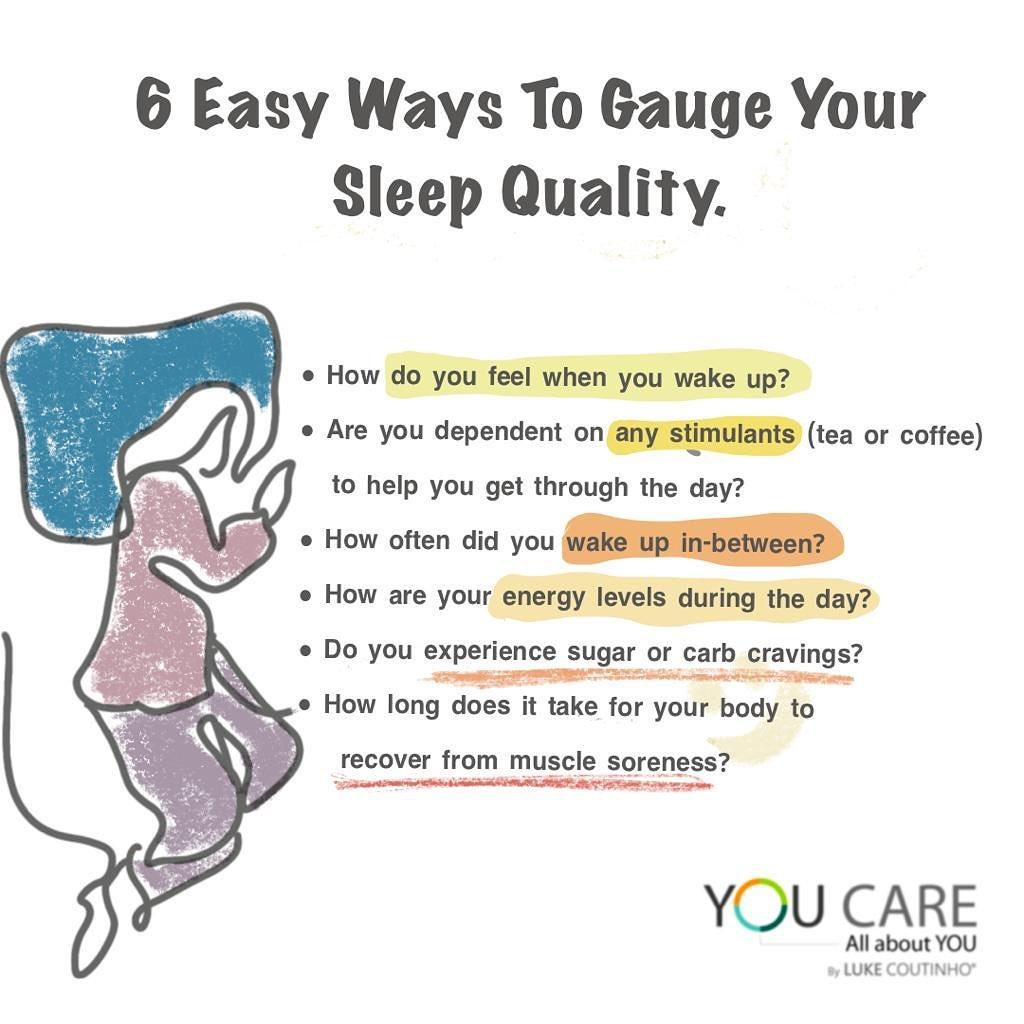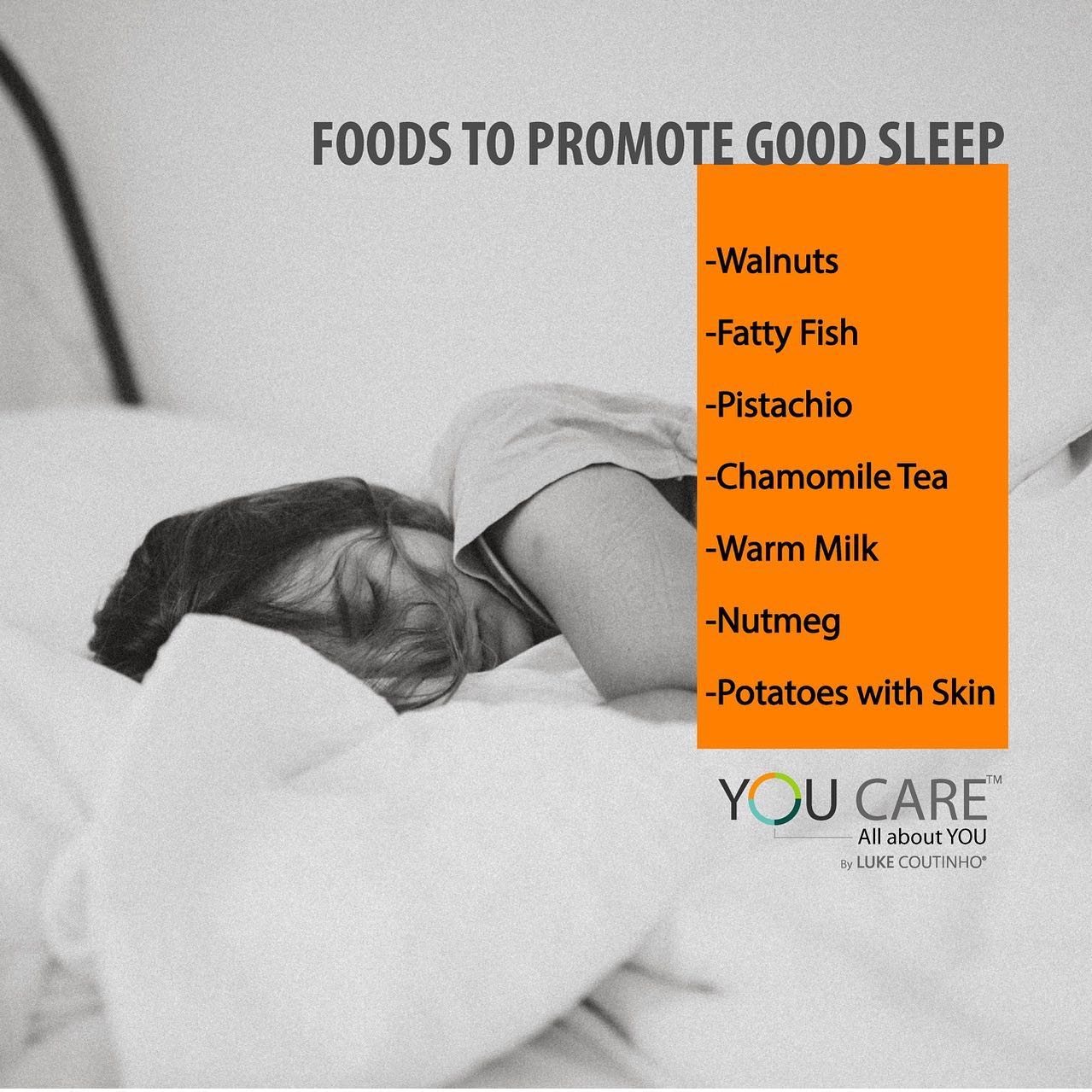“One of the most under-utilized, powerful, and natural drugs with zero side effects and a macro holistic healing effect is deep sleep. Use it well.” – Luke Coutinho
Sleep is gold. You have heard me speak about how 1 in 4 people I consult with is chronically sleep-deprived umpteen times. So, instead of replaying the same record, I thought, how about we start with a story? I first met Megha and her mother back in March 2020. Her mother had multiple health issues. After spending just half an hour with them, I gave them some simple advice. Read the story to find out what happened next.

“I signed up for a consultation with Luke for my mother, who has had various health issues for years. He spent 25 minutes with us and diagnosed the root cause as lack of sleep. I told him, ‘It is not possible, she had been suffering for years! How can sleep cause so many problems?’ He told me, ‘I don’t need your mother on a program. I just need her to sleep.’ He gave me some tips to improve her sleep and asked us to implement these tips for 15 days. If there were no improvements, he would enroll her in a program. And so we followed his suggestions.
Within 15 days later, my mum had sorted every issue with just good quality sleep. It was like witnessing a miracle. Her acid levels, bone pain, anxiety, fatigue, and blood sugar and pressure came under control. Her doctor asked her to stop her BP and sugar meds within a month. Her bloating has disappeared, and she is so happy. Luke could have easily signed her up for a 3-month program, but he did not. In a world where everyone is chasing money, I got my resolution and my mother’s health back with just simple advice.”
Nothing expresses the power of deep sleep better than this. Does this inspire you to reflect on your sleep patterns and make the necessary change?
Table of Contents
ToggleIf yes, here are 8 common sleep mistakes you must stop making.
#1 You do not have a fixed bedtime routine

You are a product of nature and your body thrives when it works in alignment with the laws of nature. Simply put, the circadian rhythm or the sleep-wake cycle operates on light and darkness. Research studies that have examined sleep-wake patterns minute-to-minute among individuals for a 24-hour cycle suggest that the more irregular these sleep patterns, the higher your vulnerability to obesity, hypertension, and elevated blood sugar. This also indicates an increased projected risk of developing heart disease. So fix your sleep and wake-up time. The hours between 9 pm to 11 pm are the most powerful for rest and recovery.
#2 You keep hitting the snooze button repeatedly

How often do you set multiple alarms and hit the snooze button to get those 15 extra minutes of sleep? You need to stop doing this now. To understand why you need to acquaint yourself with the different stages of sleep. When you first hit your bed and dose off, you are in a stage of light sleep where your body begins to wind down and relax. Your heart rate slows and your temperature drops. After this, you enter the stage of deep sleep which is where the magic happens. The building, repair, recovery, regrowth, and strengthening of your body occur here. The next stage that you enter is REM or rapid eye movement sleep. This is where you dream. Your brain is super active and this stage influences how focused you feel the next day. But it only begins 90 minutes/3 hours from the time you sleep.
When you wake up to your alarm and get out of your bed, the REM cycle ends. But when you simply open your eyes and keep hitting snooze to go back to sleep, you keep going back into the REM cycle and waking up again abruptly. You put your body through disrupted and incomplete REM cycles. This is why you may notice when you keep hitting the snooze button and wake up, you feel tired and disoriented. This does nothing to help you kickstart your day on a good note. So stop hitting that snooze button and waking up to shrill alarms. Use soothing natural sounds instead.
#3 You nap too much during the day

We know the temptation of a good afternoon siesta. But did you know research suggests that frequent or usual daytime napping in adults is associated with a 12% higher risk of developing high blood pressure and a 24% high risk of having a stroke compared to never napping? Experts suggest while daytime napping is not unhealthy, it is a sign that you have poor sleep quality at night.
#4 You use gadgets in bed

We cannot stop emphasizing the importance of gadgets and digital detox at least an hour or two before bed. The bright blue or white light from your screen is suppressing the secretion of melatonin (your sleep hormone). These throw your circadian rhythm out of whack. Your brain is forced to think that this is daylight and therefore it signals your body to stay awake when it shouldn’t.
So the next time you are tempted to binge-watch a series through the night, work that extra hour without blue-light blockers or engage in bedtime procrastination, remind yourself why you need to switch it off.
#5 You lie in bed even when you cannot fall asleep

This is one of the most common mistakes that tops the chart. How many times do you find yourself lazing, tossing and turning, and worrying about when sleep will arrive? You need to stop. Because sleep experts say this is how you condition your brain to believe that your bed is the perfect place for insomnia to occur. Cannot sleep? Engage in simple screen-free activities that can induce sleep. Read, play crossword puzzles, have a conversation with your family/roommate, tidy your room, practice deep breathing or Yoga Nidra, pray, or make love. Sleep is bound to arrive in its time. Don’t overthink or worry about it.
#6 You consume stimulants before bed

A research study concluded that 400 mg of caffeine taken 0, 3, or even 6 hours before bedtime can seriously disrupt your sleep cycles. This pattern of sleep loss over multiple nights can affect your day-to-day functioning in the long run. Coffee, tea, and other stimulants are meant to excite your brain, keep you alert, and block chemicals that induce sleep. But of course, the tolerance for different individuals can vary. So it doesn’t hurt to reflect on your schedule and check if caffeine is affecting your ability to sleep deep.
#7 You sleep with the wrong lighting and temperature
Deep sleep is not just about the hours or quality, but also the atmosphere you create to fall asleep. Yes, while various researchers have varying schools of thought about how red light, yellow or orange bulbs work best, what we suggest to our clients is to sleep in a pitch dark room. This will sync your body with the circadian rhythm and signal for your body to move into a relaxing slumber in the absence of light. This also promotes better secretion of melatonin. Also, sleeping at very hot or cold temperatures can disrupt your sleep cycles. So finding a temperature that suits your body is crucial.
#8 You pile on sleep debt
We have said this before and will repeat it until you start paying attention to it. Stop piling sleep debt. What is this all about? How many times do you find yourself working, studying, staying up late, and socializing with the thought that you will make up for lost sleep on the weekend? This loss of sleep can affect you at a deep cellular level over time.
Sleep debt is the difference between the amount of sleep you need and how much you get. According to researchers, your body can take up to four days to recover from one hour of lost sleep and over nine days to eliminate your accumulated sleep debt. But it may not necessarily reverse the damage it has already caused. If you want to have improved brain health and cognitive function to excel at what you do, sleep deep.
How to gauge the quality of your sleep?
Can foods promote sleep?
Yes, one way to invest in better sleep patterns is by adopting an inside-out approach. Before hopping onto a sleeping pill, try this. Eat these foods to induce quality and deep sleep.
Struggling to fall asleep? Try this Sleep Potion by our experts at You Care Wellness
Ingredients:
- ¼ tsp nutmeg powder
- 5 strands of saffron/Kesar
- 2 tsp poppy seeds/khus khus
- 5 soaked black raisins
Method:
- Mix all the spices in a cup of warm water for a couple of hours and let the ingredients steep well in the water.
- Have it with soaked raisins up to six hours before bed.
Disclaimer: Always make an informed decision. Keep your healthcare provider in the loop before trying anything new. If the spices do not suit you, avoid them.
What are some pre-bedtime rituals to induce deep sleep?
- Early dinners, before or close to sunset. It improves your sleep schedule and eases digestion. Eating late-night meals makes you feel heavy, sluggish, and lethargic on waking up because your body does not break down food effectively post sunset.
- If you can’t make it early to your dinners, eat light dinners at least an hour or two before bedtime.
- Set a fixed sleep and wake-up time. Have a fixed bedtime routine to ensure sound sleep. This helps set your biological clock as per the routine.
- Avoid consuming stimulants like tea, coffee, alcohol, spicy foods, tobacco, smoking, social media, news, and disturbing conversations around bedtime.
- Solve crossword puzzles, play sudoku or simply have pleasant conversations with your kids or family members.
- Be consistent with your gadgets and digital detox. Switch off all gadgets two hours before bed.
- Maintain pitch dark surroundings. Dark rooms also help secrete the sleep hormone, melatonin, otherwise restricted due to artificial lighting.
- Sprinkle or dab essential oils like lavender, frankincense, or vetiver on your pillow.
- Try Left nostril breathing/Chandra Bhedana or 4-7-8 breathing technique. You can also try Bhramari or Bee Breathing.
- Read before bedtime to reduce stress, clear your mind, and prepare your body for sleep.
- Reflect on your day for a deeper sleep. Replay your day, how it went, and the moments that made you smile. Reflect on what made you feel good about yourself. Acknowledge three things or people you are grateful for or journal them.
- Meditate and set intentions. Visualize how you want to spend the next day. Try to maintain a journal where you write it all before you sleep. Do these at least 10 to 15 minutes before bedtime.
- Take a warm shower before bedtime to relax your muscles. You can even add essential oils or Epsom salt to the water.
- Try yogic practices like Yoga Nidra and Shavasana.
- From lullabies to instrumental music and ambient nature sounds, soothing music with gentle rhythms has the power to lull anyone to sleep. A study revealed that adults who listened to 45 minutes of music before bed slept better. It also reduced the falling asleep time in a group of women with insomnia from 27 to 69 minutes to 6 to 13 minutes. Listening to music helps reduce cortisol levels, boost dopamine, regulate hormones, slow breathing, lower heart rate, and manage blood pressure. It also diverts your mind from anxious thoughts and drowns environmental distractions to increase sleep efficiency.
Here’s wishing you a deep and restful sleep tonight. Let me know how these tips helped you in the comments.
WATCH THIS: Sleep Deprived? Here’s A Fix
RELATED READINGS
11 Health Benefits of Eating 6 Soaked Black Raisins a Day
How Can Late-night Workers Have An Improved Sleeping Schedule?
Luke Coutinho
Luke Coutinho practices in the field of Holistic Nutrition and Integrative and Lifestyle Medicine. He is the pioneer and founder of the You Care Wellness Program which has consulted and treated over 20,000 patients globally. This integrative lifestyle program revolves around five fundamental pillars - Cellular Nutrition, Adequate Exercise, Quality Sleep, Emotional Detox, and the Spirit. It has now stemmed into a beautiful community with over a million people. His free videos, blogs, challenges, and programs have helped people reverse lifestyle conditions, put cancers into remission, and overcome suicidal tendencies to live happier lives. Luke has authored four bestsellers and won several national and international awards. He is the Champion for Lifestyle and Wellness for PM Narendra Modi’s Fit India Movement. He is the founder of India's first ethical wellness platform, You Care Lifestyle, where all things are verified by Luke and his team. He is also the founder and chief program mentor for Integrative Nutrition and Dietetics courses at the Lifeness Science Institute (LSI). He travels the world to speak on holistic wellness and empower people to live their most extraordinary life.
Start Your Wellness Journey
Feeling inspired to take the next step in your wellness journey? Connect with us to explore how our tailored programs can support your health journey. Your transformation is just a conversation away.






Hi Luke
I am 65 years of age. I don’t sleep well at all. I wake up in the middle of the night with severe leg pains then I can’t get back to sleep for a few hours. I have to wake up in the morning for work. How can I combat this situation. I am too stressed out Please help
Hi Irene,
Sorry to hear this. Our team can help you find a way. We will need to assess your case in detail before suggesting anything. You can set up a one-on-one consult with my team by connecting on WhatsApp https://api.whatsapp.com/send?phone=919820720253&text=wellness or writing to us at [email protected].